#Justice Chaudhury
Explore tagged Tumblr posts
Text

Justice Chaudhury (1983)
573 notes
·
View notes
Text
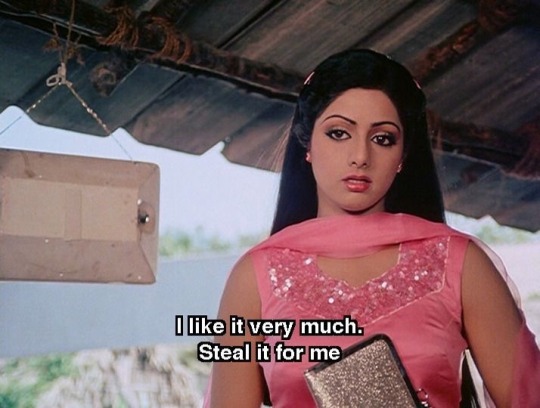

aloneandforsakenbyfateandman
1 note
·
View note
Text


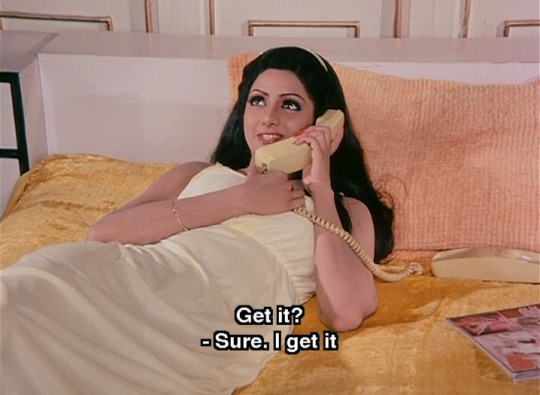
(Justice Chaudhury, 1983)
2 notes
·
View notes
Text





CELEBRATING 25 Years of GIDF on the occasion of the 50th Birth Anniversary of Aurobindo Chaudhuri♥️🎂♥️
The Aurobindo Chaudhuri Memorial Great Indian Dream Foundation (ACM GIDF) was established on 28th March, 2000 as a social action and research organisation of national repute, facilitating research and community development initiatives. Founded by Dr. Arindam Chaudhuri as a part of the social initiative of The Indian Institute of Planning & Management (IIPM) & Planman Consulting, GIDF since then has done work in more than 2000 villages across the length and breadth of India touching & impacting more than 1.5 million lives through Education projects, Livelihood projects, Environment & community development projects like mud water dams, cremation facilities, Night Sheltors etc, Women’s Self Help Groups, Health Initiatives, Social Justice initiatives, Seminars, Research, BMVP (Bharatiya Manavata Vikas Puraskars) Awards, Low cost Bypass Surgery initiatives.
One of the world’s greatest sports person ever, Sachin Tendulkar was the initial brand ambassador of GIDF and famously said the line — “There’s more to life than cricket” in the GIDF ad campaign.
During his time as the President of India, Shri APJ Abdul Kalam was the Chief Guest at the First Child Education Summit organised by GIDF & DPS Society. The event was attended by Shri L. K. Advani & CM of Delhi Smt. Shiela Dixit amongst others. Other notable events of GIDF have had Former President Shri Pranab Mukerjee in attendance amongst others. In 2003, the first copy of the book carrying GIDF vision statement, The Great Indian Dream was presented to Mrs. Sonia Gandhi.
The recipients of the annual BMVP awards include the Former President of India Shri Pranab Mukherjee, Kiran Bedi, TN Seshan, Dr. Devi Shetty, Iron Lady Irom Sharmila Chanu, Mahasveta Devi, Medha Patkar amongst many other activists, social workers doyens from the world of art, culture & literature.
The vision for GIDF is guided by three books written by Dr. Malay Chaudhuri & Arindam Chaudhuri viz. ‘The Great Indian Dream’, ‘2047– A roadmap to beating USA & China’ and ‘What Marx Left Unsaid’ (additionally co-authored by Che Kabir Chaudhuri).
https://youtube.com/playlist?list=PL2iziCQtguoO700v5un_CIUXe9VJwXzB4&feature=shared
https://www.instagram.com/greatindiandream?igsh=MWEzMGR0amplNncxdw%3D%3D&utm_source=qr
Gidf.org
0 notes
Text

Supporters of former Prime Minister Imran Khan and his Pakistan Tehreek-e-Insaf party celebrate after a Supreme Court verdict in Karachi, Pakistan, on July 12.Asif Hassan / AFP
Pakistan’s “Corrupt To Their Core Judiciary—Traitor, Corrupt and Dollars Military” Rift Threatens a New Political Crisis
On Monday, Pakistani Information Minister Atta Tarar announced that the government planned to ban what is arguably the country’s most popular political party: Pakistan Tehreek-e-Insaf (PTI), led by imprisoned former Prime Minister Imran Khan. The PTI, Tarar said, is “a direct threat to the fabric of our nation.” Deputy Prime Minister Ishaq Dar clarified the next day that the decision wasn’t final, though his comments—which include accusing the PTI of being a “foreign-funded party”—suggest that the government still intends to proceed with the move.
Any ban, however, is unlikely to hold up in court. On Friday, Pakistan’s Supreme Court—which, according to the constitution, must sign off on any decision to ban a political party—affirmed in a ruling that the PTI is a legitimate political party and thus eligible for an additional 23 seats in the National Assembly. The government’s plan to ban the PTI is likely a direct response to that decision.
These developments reflect an intensifying tussle between Pakistan’s judiciary and its military, which officially ruled the country for decades and continues to be its most dominant political actor. Usually, it’s civil-military relations that lead to political tensions in Pakistan. But at a time when the country’s civilian government is actually on good terms with its military leaders, the new judiciary-military rift has become the latest fault line threatening to spark a new phase of instability in Pakistan’s long-standing political crisis.
Pakistan’s judiciary has often been willing to inject itself into domestic politics. This inevitably leads to tensions with the military, which sometimes play out in bizarre ways. In 2007, a bitter confrontation between the Supreme Court and Pervez Musharraf, Pakistan’s last military dictator, culminated in Musharraf suspending the constitution and sacking Chief Justice Iftikhar Muhammad Chaudhry. The top judge joined large groups of lawyers to demonstrate for democracy. Chaudhury became an unlikely symbol of the democracy movement that contributed to Musharraf’s eventual ouster.
Today, the military no longer formally holds power, and the judiciary isn’t as overtly political. But a fresh confrontation is unfolding. Since Khan was ousted as prime minister after a parliamentary no-confidence vote in April 2022, the state—indirectly led by the military—has cracked down hard on Khan and his party, including by pressuring the courts to rein in the PTI. This has resulted in multiple charges and convictions against Khan, many of them likely politically motivated.
PTI leaders have repeatedly gone to the courts seeking relief. Sometimes, the Supreme Court has ruled in their favor, such as when it ordered Khan’s release after his initial arrest in May 2023; other times, it has not, such as when it forbade the PTI from using its symbol, a cricket bat, in this year’s elections.
Several factors make the recent judiciary-military confrontation especially worrisome. As civil-military relations have become more robust since Khan’s ouster, governing coalition leaders have willingly ceded greater say in policymaking to the military. This means the government, which shares the military’s goal of sidelining the PTI, will not try to check military pressure on the courts.
The military is further motivated to influence the judiciary to curb the PTI because of an ugly vendetta between Khan—who has resorted to withering criticism of the military from his prison cell—and the current army leadership. Violent public protests targeted army facilities after Khan’s initial arrest.
A stunning letter, written in March by six High Court judges to senior judicial figures, revealed the scale of this pressure. It accused Pakistan’s military-run intelligence agency of extreme forms of interference and intimidation of judges and their families, including abduction, torture, and even the installation of hidden security cameras in their bedrooms.
This confrontation distracts policymakers from other major crises. Pakistan is suffering a resurgence of terrorism, with major increases in attacks over the past year. On Monday, just a few weeks after the government announced a “reinvigorated” counterterrorism plan, militants assailed an army base in northwestern Pakistan, killing at least eight troops.
Additionally, Pakistan faces serious economic stress. On Friday, the International Monetary Fund (IMF), a critical donor, announced a new staff-level agreement to provide fresh funds, but the deal is subject to IMF board approval. The IMF has recently signaled the need for political stability in Pakistan, suggesting that it may delay releasing funds if instability worsens.
With Pakistan experiencing multiple crises, the potential costs of a dangerous confrontation between two critical institutions could go well beyond politics.
#Foreign Policy#Pakistan 🇵🇰#“Corrupt To Their Core Judiciary—Traitor Corrupt and Dollars Military”#New Political Crisis#Imran Khan#Supreme Court of Pakistan 🇵🇰#Corrupt Judges | Corrupt Dollar Generals
0 notes
Text
"The Shocking Verdict: Government's Land Acquisition Powers Halted Until Full Compensation is Satisfied!"
The Calcutta High Court has ruled that the West Bengal government must fully compensate landowners before acquiring their land. Justice Bibek Chaudhuri stated that Section 38 of the 2013 Act prohibits taking possession of acquired land until the compensation amount has been paid in full. The court has ordered a status quo on a possession dispute related to the construction of a bypass connecting…

View On WordPress
0 notes
Text
"The Shocking Verdict: Government's Land Acquisition Powers Halted Until Full Compensation is Satisfied!"
The Calcutta High Court has ruled that the West Bengal government must fully compensate landowners before acquiring their land. Justice Bibek Chaudhuri stated that Section 38 of the 2013 Act prohibits taking possession of acquired land until the compensation amount has been paid in full. The court has ordered a status quo on a possession dispute related to the construction of a bypass connecting…

View On WordPress
0 notes
Text
"Exclusive: College Principal Defies Calcutta HC Order! What Made Her Challenge Her Own Removal?"
The principal of Jogesh Chandra Chaudhuri Law College in Kolkata has taken legal action against a recent order from the Calcutta High Court calling for her removal. On Thursday, a single-judge bench led by Justice Abhijit Gangopadhyay directed the removal of Sunanda Goenka from her position as principal, as well as another teacher from the same college, due to allegations that their appointments…
View On WordPress
0 notes
Video
youtube
"JUSTICE CHAUDHURY" - MOVIE REVIEW | JEETENDRA MOVIE |
0 notes
Photo
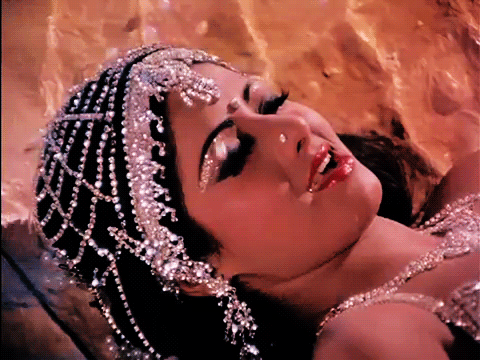
Sridevi // Justice Chaudhury // 1983
#Sridevi#bollywood2#bollywood#justice chaudhury#1980s#80s#classic bollywood#vintage#baawri#india#beauty#gif
573 notes
·
View notes
Photo
Sridevi in Justice Chaudhury


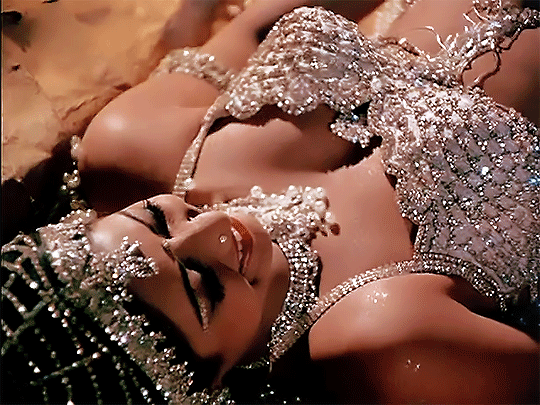
13K notes
·
View notes
Text

Justice Chaudhury (1983)
258 notes
·
View notes
Text
Essays
Here’s a (non-exhaustive) list of essays I like/find interesting/are food for thought; I’ve tried to sort them as much as possible. The starred (*) ones are those I especially love
also quick note: some of these links, especially the ones that are from books/anthologies redirect you to libgen or scihub, and if that doesn’t work for you, do message me; I’d be happy to send them across!
Literature + Writing
Godot Comes to Sarajevo - Susan Sontag
The Strangeness of Grief - V. S. Naipaul*
Memories of V. S. Naipaul - Paul Theroux*
A Rainy Day with Ruskin Bond - Mayank Austen Soofi
How Albert Camus Faced History - Adam Gopnik
Listen, Bro - Jo Livingstone
Rachel Cusk Gut-Renovates the Novel - Judith Thurman
Lost in Translation: What the First Line of “The Stranger” Should Be - Ryan Bloom
The Duke in His Domain - Truman Capote*
The Cult of Donna Tartt: Themes and Strategies in The Secret History - Ana Rita Catalão Guedes
Never Do That to a Book - Anne Fadiman*
Affecting Anger: Ideologies of Community Mobilisation in Early Hindi Novel - Rohan Chauhan*
Why I Write - George Orwell*
Rimbaud and Patti Smith: Style as Social Deviance - Carrie Jaurès Noland*
Art + Photography (+ Aesthetics)
Looking at War - Susan Sontag*
Love, sex, art, and death - Nan Goldin, David Wojnarowicz
Lyons, Szarkowski, and the Perception of Photography - Anne Wilkes Tucker
The Feminist Critique of Art History - Thalia Gouma-Peterson, Patricia Mathews
In Plato's Cave - Susan Sontag*
On reproduction of art (Chapter 1, Ways of Seeing) - John Berger*
On nudity and women in art (Chapter 3, Ways of Seeing) - John Berger*
Kalighat Paintings - Sharmishtha Chaudhuri
Daydreams and Fragments: On How We Retrieve Images From the Past - Maël Renouard
Arthur Rimbaud: the Aesthetics of Intoxication - Enid Rhodes Peschel
Cities
Tragic Fable of Mumbai Mills - Gyan Prakash
Whose Bandra is it? - Dustin Silgardo*
Timur's Registan: noblest public square in the world? - Srinath Perur
The first Starbucks coffee shop, Seattle - Colin Marshall*
Chhatrapati Shivaji Terminus, Mumbai's iconic railway station - Srinath Perur
From London to Mumbai and Back Again: Gentrification and Public Policy in Comparative Perspective - Andrew Harris
The Limits of "White Town" in Colonial Calcutta - Swati Chattopadhyay
The Metropolis and Mental Life - Georg Simmel
Colonial Policy and the Culture of Immigration: Citing the Social History of Varanasi - Vinod Kumar, Shiv Narayan
A Caribbean Creole Capital: Kingston, Jamaica - Coln G. Clarke (from Colonial Cities by Robert Ross, Gerard J. Telkamp
The Colonial City and the Post-Colonial World - G. A. de Bruijne
The Nowhere City - Amos Elon*
The Vertical Flâneur: Narratorial Tradecraft in the Colonial Metropolis - Paul K. Saint-Amour
Philosophy
The trolley problem problem - James Wilson
A Brief History of Death - Nir Baram
Justice as Fairness: Political not Metaphysical - John Rawls*
Should Marxists be Interested in Exploitation? - John E. Roemer
The Discomfort You’re Feeling is Grief - Scott Berinato*
The Pandemic and the Crisis of Faith - Makarand Paranjape
If God Is Dead, Your Time is Everything - James Wood
Giving Up on God - Ronald Inglehart
The Limits of Consensual Decision - Douglas Rae*
The Science of "Muddling Through" - Charles Lindblom*
History
The Gruesome History of Eating Corpses as Medicine - Maria Dolan
The History of Loneliness - Jill Lepore*
From Tuskegee to Togo: the Problem of Freedom in the Empire of Cotton - Sven Beckert*
Time, Work-Discipline, and Industrial Capitalism - E. P. Thompson*
All By Myself - Martha Bailey*
The Geographical Pivot of History - H. J. Mackinder
The sea/ocean
Rim of Life - Manu Pillai
Exploring the Indian Ocean as a rich archive of history – above and below the water line - Isabel Hofmeyr, Charne Lavery
‘Piracy’, connectivity and seaborne power in the Middle Ages - Nikolas Jaspert (from The Sea in History)*
The Vikings and their age - Nils Blomkvist (from The Sea in History)*
Mercantile Networks, Port Cities, and “Pirate” States - Roxani Eleni Margariti
Phantom Peril in the Arctic - Robert David English, Morgan Grant Gardner*
Assorted ones on India
A departure from history: Kashmiri Pandits, 1990-2001 - Alexander Evans *
Writing Post-Orientalist Histories of the Third World - Gyan Prakash
Empire: How Colonial India Made Modern Britain - Aditya Mukherjee
Feminism and Nationalism in India, 1917-1947 - Aparna Basu
The Epic Riddle of Dating Ramayana, Mahabharata - Sunaina Kumar*
Caste and Politics: Identity Over System - Dipankar Gupta
Our worldview is Delhi based*
Sports (you’ll have to excuse the fact that it’s only cricket but what can i say, i’m indian)
'Massa Day Done:' Cricket as a Catalyst for West Indian Independence: 1950-1962 - John Newman*
Playing for power? rugby, Afrikaner nationalism and masculinity in South Africa, c.1900–70 - Albert Grundlingh
When Cricket Was a Symbol, Not Just a Sport - Baz Dreisinger
Cricket, caste, community, colonialism: the politics of a great game - Ramachandra Guha*
Cricket and Politics in Colonial India - Ramchandra Guha
MS Dhoni: A quiet radical who did it his way*
Music
Brega: Music and Conflict in Urban Brazil - Samuel M. Araújo
Color, Music and Conflict: A Study of Aggression in Trinidad with Reference to the Role of Traditional Music - J. D. Elder
The 1975 - ‘Notes On a Conditional Form’ review - Dan Stubbs*
Life Without Live - Rob Sheffield*
How Britney Spears Changed Pop - Rob Sheffield
Concert for Bangladesh
From “Help!” to “Helping out a Friend”: Imagining South Asia through the Beatles and the Concert for Bangladesh - Samantha Christiansen
Gender
Clothing Behaviour as Non-verbal Resistance - Diana Crane
The Normalisation of Queer Theory - David M. Halperin
Menstruation and the Holocaust - Jo-Ann Owusu*
Women’s Suffrage the Democratic Peace - Allan Dafoe
Pink and Blue: Coloring Inside the Lines of Gender - Catherine Zuckerman*
Women’s health concerns are dismissed more, studied less - Zoanne Clack
Food
How Food-Obsessed Millennials Shape the Future of Food - Rachel A. Becker (as a non-food obsessed somewhat-millennial, this was interesting)
Colonialism's effect on how and what we eat - Coral Lee
Tracing Europe's influence on India's culinary heritage - Ruth Dsouza Prabhu
Chicken Kiev: the world’s most contested ready-meal*
From Russia with mayo: the story of a Soviet super-salad*
The Politics of Pancakes - Taylor Aucoin*
How Doughnuts Fuelled the American Dream*
Pav from the Nau
A Short History of the Vada Pav - Saira Menezes
Fantasy (mostly just harry potter and lord of the rings)
Purebloods and Mudbloods: Race, Species, and Power (from The Politics of Harry Potter)
Azkaban: Discipline, Punishment, and Human Rights (from The Politics of Harry Potter)*
Good and Evil in J. R. R. Tolkien's Lengendarium - Jyrki Korpua
The Fairy Story: J. R. R. Tolkien and C. S. Lewis - Colin Duriez (from Tree of Tales)*
Tolkien’s Augustinian Understanding of Good and Evil: Why The Lord of the Rings Is Not Manichean - Ralph Wood (from Tree of Tales)*
Travel
The Hidden Cost of Wildlife Tourism
Chronicles of a Writer’s 1950s Road Trip Across France - Kathleen Phelan
On the Early Women Pioneers of Trail Hiking - Gwenyth Loose
On the Mythologies of the Himalaya Mountains - Ed Douglas*
More random assorted ones
The cosmos from the wheelchair (The Economist obituaries)*
In El Salvador - Joan Didion
Scientists are unravelling the mystery of pain - Yudhijit Banerjee
Notes on Nationalism - George Orwell
Politics and the English Language - George Orwell*
What Do the Humanities Do in a Crisis? - Agnes Callard*
The Politics of Joker - Kyle Smith
Sushant Singh Rajput: The outsider - Uday Bhatia*
Credibility and Mystery - John Berger
happy reading :)
#booklr#academia#dark academia#essays#recs#light academia#dark academia aesthetic#studyblr#studygram#studyspo#study aesthetic#study blog#rec list#art#history#photography#aesthetic#reading#reading list#tbr#read#study tools#I'll probably make a list of resources soon#poetry#academia aesthetic#book recs
35K notes
·
View notes
Photo


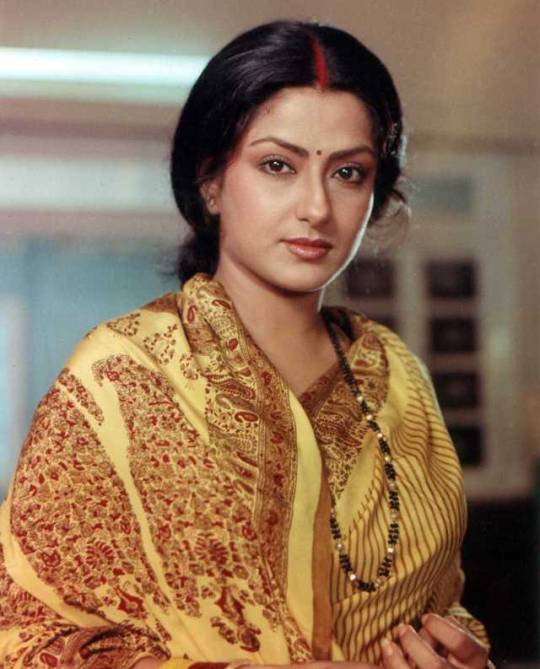
Birthday Greetings to Moushumi Chatterjee, one of the biggest stars of the 1970s, who turned 71 years today. The versatile actress Moushumi Chatterjee earned love and admiration of all filmgoers by her excellent character presentation in several films. Moushumi Chatterjee is a Bengali and Hindi film actress who has had a long career in films starting from her debut in the Bengali film Balika Badhu(1967) with Tarun Majumdar. Her latest film was the super hit Piku (2015) which won her rave reviews. Moushumi has done more than a hundred films which have been box-office hits and critically appreciated as well. Born into a family with an army background, Moushumi was married early in life to producer Jayant Mukherjee, the son of the famous music composer and singer Hemant Kumar. She started acting after her marriage and made her debut in Hindi cinema with Shakti Samanta’s Anuraag (1972) opposite Vinod Mehra. Her role as a blind girl was much liked by the audience and the critics. Following the success of Anuraag (1972), Chatterjee went onto become one of the top leading ladies of the Indian film industry. Films like Anindita (1972), Ghulam Begum Badshah (1973), Naina (1973) and Kuchhe Dhaage (1973) followed. Roti Kapda Aur Makaan (1974) with Manoj Kumar was another high point in Chatterjee’s career where she plays the role of a rape victim. For this film and for Anuraag (1972), she was nominated for Filmfare Awards for the Best Actress and the Best Supporting Actress. Benaam (1974) and Manzil (1979) co-starring Amitabh Bachchan, Sabsa Bada Rupaiya (1976) co-starring Vinod Mehra and Phool Khile Hain Gulshan Gulshan (1978) were other notable films that Moushumi Chatterjee acted in. Towards the 1980s she started taking up character roles often playing the elder sister, mother or sister- in-law in films. Some of the films from this period include Justice Chaudhury (1983), Aag Hi Aag (1987), Waqt Ki Awaz and Aa Ab Laut Chalen (1999). She continued to work in the 2000s, some of her films of this time include Deepa Mehta’s Bollywood/ Hollywood (2002), Tanuja Chandra’s Zindaggi Rocks (2006) and Aparna Sen’s The Japanese Wife (2010), all of which got her critical appreciation.
11 notes
·
View notes
Photo

THE INTERCEPT
On a warm sunday evening in Queens, New York, Joe Crowley stood before a group of about two dozen Democratic activists and made his case for why he should be returned to Congress for a 10th term. In his view, it was “destiny.”
“I was born for this role,” Crowley said at the May 20 meet-and-greet. Like President Donald Trump, he was born in Queens, though in entirely different circumstances. Trump came from great wealth and privilege, Crowley observed, while the congressperson was born to a family of Irish immigrants — the son of a police officer. Crowley is routinely floated as next in line to be the leader of the House Democrats if Rep. Nancy Pelosi of California steps aside or is ousted. “He was trying to say that me being a guy from the same place [Trump] is from, I’m the guy to take him on,” said Andy Aujla, who hosted the event at his home.
To meet with that destiny, however, he has an obstacle to overcome: Alexandria Ocasio-Cortez — a Bronx-born millennial whose scrappy challenge from the left has generated excitement nationally and around the district, which encompasses parts of Queens and the Bronx.
If Crowley positions himself as a photo negative of the president, Ocasio-Cortez is a different medium altogether. A 28-year-old woman and daughter to a Puerto Rican mother and Bronx father, Ocasio-Cortez’s most notable novelty is arguably not her demographic profile, but her policy profile. She calls for the abolition of U.S. Immigration and Customs Enforcement (ICE), Medicare for All, tuition-free public college, a federal jobs guarantee, and criminal justice reform “now.” “It doesn’t take 100 years to do this,” she intones in a viral campaign video. “It takes political courage.”
Crowley, though, when he talked about the campaign, shared his frustration over what he perceives to be an inordinate focus on ethnicity.
His opponent, he said, was trying to make the campaign “about race” — a strategy he called “unnecessarily divisive” at a time when the party needed to be “fighting Republicans, not other Democrats,” according to two people at the gathering.
“I can’t help that I was born white,” Crowley said. One of those who heard Crowley’s speech, Nick Haby, a Democratic activist who attended the meet-and-greet, agreed to speak on the record, while the second asked for anonymity given Crowley’s power in the Queens political machine.

Vijay Chaudhuri, a spokesperson for the Crowley campaign who was at the event, said Crowley’s remarks had been inaccurately relayed in a manner intended to “tear down Joe and boost his primary opponent.”
The Crowley campaign connected The Intercept with the host of the event, Aujla, to refute the claims being made, but Aujla said that while he didn’t hear Crowley opine on the political implications of his whiteness that evening, he had heard him make a version of that remark before. “I don’t remember him saying that directly, but I have heard him say at other places, ‘I can’t help the color of my skin or anything like that, but I am very diverse, I support very diverse people,’ or something to that extent,” said Aujla, adding that he was not offended by anything Crowley said that evening.
New York state Sen. Michael Gianaris, whom the Crowley campaign also recommended to The Intercept, was at the event as well. He said he did not hear Crowley’s comments about race, though he did hear his riff about being born in the same place as Trump.
City councilman Costa Constantinides said that he’s heard Crowley contrast himself with Trump at so many events he could recite that portion of the stump speech verbatim. “He feels like he was born for this moment; there couldn’t be two guys from Queens who are more different,” Constantinides, who has endorsed Crowley and was at the gathering, recounted.
He said he didn’t recall Crowley making any comments about his own race being a hinderance in the campaign. Constantinides explained that he wasn’t paying close attention to Crowley’s talk, that he was mostly chatting with constituents and eating baklava during the remarks. “I remember him saying he’s not running against Alexandria, but he’s running against a president that is wrong,” he said.
Haby said he came to the event with an open mind about Crowley, but he left leaning against him, even though he aligns with the Hillary Clinton wing of the party, whose agenda is most closely mirrored by Crowley’s. (Ocasio-Cortez is a former organizer for Bernie Sanders’s 2016 campaign and has been endorsed by Sanders-affiliated groups Our Revolution and People for Bernie Sanders, as well as the Democratic Socialists of America.)
Most of those at the event were white or white-presenting, Haby said, and he found Crowley’s defense that he couldn’t “help” being born white, coupled with his claims of being “destined” for leadership, odd and off-putting.
The source who originally tipped The Intercept off to Crowley’s alleged remarks in the days following the event was similarly troubled by Crowley’s comments on race. “It just felt really weird and not appropriate,” he explained.
If Crowley’s comments seem odd, it may be because Crowley is relatively inexperienced at campaigning.
Crowley graduated from Queens College in 1985 while his uncle, Walter Crowley, was serving as a city councilor — a seat he had inherited from then-Queens party boss Tom Manton. Walter Crowley died in 1985, and according to subsequent New York Times reporting, Joe Crowley “set his eyes” on the seat, but was thwarted. “[W]hen Assemblyman Ralph Goldstein died in 1986, Mr. Crowley decided to run in the Democratic primary to succeed him. It was a crowded race with seven candidates. Mr. Crowley, then 24, won that race decisively,” the Times reported.
Crowley fended off a primary challenger in 1988, winning comfortably.
In 1999, when Manton, by then a member of Congress, retired, Crowley got a phone call from him. “On the last legal day to find a replacement, Mr. Manton convened a small meeting and telephoned Joseph Crowley, then an Assemblyman, to tell him he would be on the ballot in November [2000] as a congressional candidate,” the New York Sun reported.
He was effectively appointed to Congress by the party boss. Crowley also inherited Manton’s role as the new “king of Queens,” and has run the district machine since then. He had to defend his seat against primary challengers in 2002 and 2004 and each time won comfortably.
Despite having been in elected office for more than 30 years, Crowley has faced just four primary contests, and won them all comfortably. He has not faced a challenger since 2004.
His seat is now being challenged by Ocasio-Cortez, who’s running with a grassroots army, national attention, and a popular campaign ad that celebrates her independence from the Queens machine — her freedom to mount a direct challenge to the throne.

(Congressional candidate Alexandria Ocasio-Cortez walks at her neighborhood in Bronx, New York, on April 21, 2018.)
The irony that Crowley laments how he “can’t help” being white, while ignoring the political advantages he inherited, is not lost on Ocasio-Cortez. “The congressman could have helped that he accepted inheritance of his seat from a multigenerational political dynasty without a true primary — a process by which people of color are historically locked out of representation. The congressman could help that he voted to establish ICE. The congressman can help the fact that he accepts money from developers that are displacing our communities and the folks criminalizing our backyards,” she told The Intercept.
“Additionally, why is it that the congressman can proudly discuss his Irish heritage on the campaign trail, but I am somehow barred from mentioning my Puerto Rican family?”
(Continue Reading)
#politics#the left#joe crowley#alexandria ocasio cortez#Justice Democrats#progressive#progressive movement#new york#new york primary#the intercept
130 notes
·
View notes
Text
Women and Witch Hunts: How Far Have We Progressed?
by Christina A.

A maine coon cat looks up at the camera wearing a patterned purple witch hat and matching bowtie. Upland, California, 31 October 2021 (Cade Spencer/The CAVA Voice)
"The term witch is used as a suitable opportunity to hide behind and put women down in order for men to flourish, meaning they spotlight the inferiority and dangers of womanhood because their strengths and excellence would hinder manhood."
A Witch is more than just a cunning woman with magical powers; it’s an emblem of a repressive past. Several centuries ago, in colonial Massachusetts, more than 200 people were accused of practicing witchcraft and 19 were executed, establishing what is now infamously known as the Salem Witch Trials. However, the primary suspects during this brutal era were powerless women. The accused women had no means to defend or protect themselves as the accusations were built off of fallacy and misogyny. Today, whenever the term ‘witch’ is used against a woman, it is society’s way of retrograding and obscuring the legitimacy of a situation. In many countries, society's current behavior towards women contains elements of its hapless history, as demonstrated through both despotism and systematic oppression.
The desire for power works as a driving force behind oppression. A researcher by the name of Seema Yasmin who studied journalism at Stanford University investigated the abuse and superstition of men in India. Yasmin expounds on how witch hunts primarily target women and exploit India’s caste system: “Men who brand women as dakan (witch) capitalize on deeply-rooted superstitions and systems built on misogyny and patriarchy to lay blame on females.” The term witch is used as a suitable opportunity to hide behind and put women down in order for men to flourish, meaning they spotlight the inferiority and dangers of womanhood because their strengths and excellence would hinder manhood.
Yasmin later mentions a quote from Soma Chaudhuri, a sociologist at Michigan State University who studies gender violence in India: “The accusations of sorcery are used to oust women from valuable land that men covet, in a region where flawed development plans have produced agricultural failures.” As a result of the stereotypes of the genders formulated and embedded throughout our history, many men feel they still wear the title of unlimited power simply due to the standards. It’s present in the case of India, where they feel they have the right to expel their female counterparts in order to purloin the land they yearn to have.
An individual with social disadvantages, such as a woman, wears an easily positioned target for the legal system to aim towards. Connie Hassett-Walker, a writer who holds a PhD in Criminal Justice from Rutgers University, explains prejudices and biased behavior that are found within our current criminal justice system: “Today, the criminal justice system continues to punish the vulnerable women in society. Most women who end up under supervision of the U.S. correctional system, whether through probation, jail, prison or parole, come from a poor background.” Not only does the disadvantage of prejudice against women come into play, but the disadvantages of poverty and background as well. When it comes to these disadvantages, the correctional systems are less lenient, thus exploiting the defenseless. Half of these female criminals are more likely placed in these vulnerable positions due to the extensive histories of victimization. Hassett-Walker provides an example, “A girl facing physical or sexual abuse at the hands of parents, relatives or family friends may opt to run away, thereby becoming a criminal by leaving her home as a minor.” This unjust punishment can easily connect to a Salem story about a girl named Tibuta. Bridget Marshall, an Associate Professor of English whose interests include colonial American witchcraft trials, summarizes Tibuta’s story. She was an enslaved woman in the household of a Reverend for teaching witchcraft to the local girls and confessed to “signing the devil’s book” in 1692. However, Marshall claims that given Tibuta’s position, both an enslaved person and a woman of color, she was likely coerced. Although witch trials are not occurring today, factors that played a role in the accusation and executions are still present as the legal system targets a subjugated minority.
In short, remnants of the harsh past of Salem exist today as vulnerable women are still being punished due to superstition and power. Although some societies have moved forward, there are still many places in the world that are stuck lingering in the corollary of a tyrannical history. The treatment of women in society has not progressed very far.
0 notes